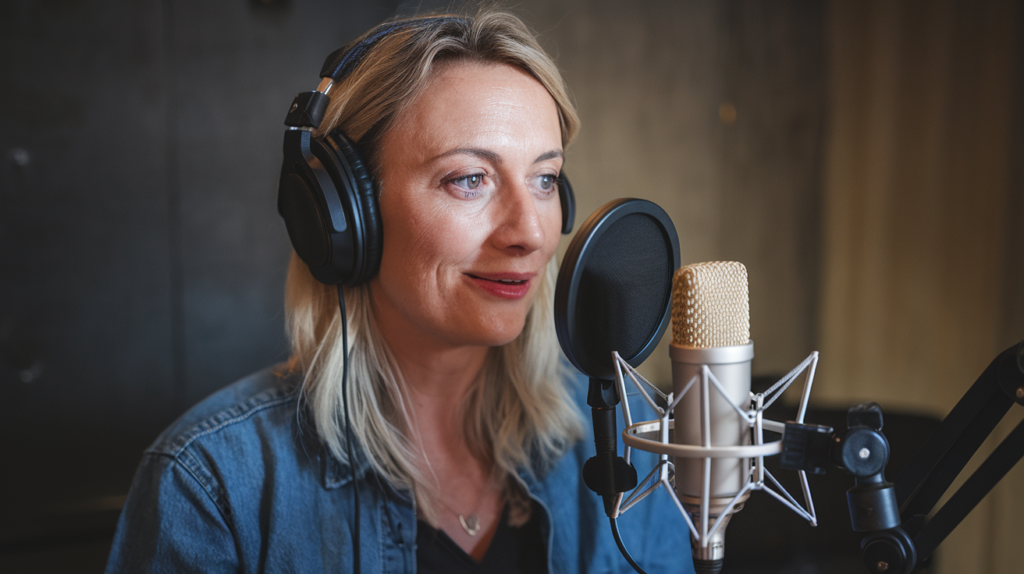If you’ve ever wandered through the picturesque landscapes of Brittany, you might’ve noticed that the French spoken there has its own unique flavor. While Parisian French is often seen as the standard, the regional dialects and expressions in Brittany reveal a rich tapestry of culture and history. This difference goes beyond just accents; it encompasses vocabulary, pronunciation, and even local idioms.
Understanding how Breton influences the language can deepen your appreciation for this vibrant region. Whether you’re planning to visit or simply curious about linguistic diversity in France, exploring these differences will enhance your experience. Dive into the fascinating world of Brittany’s distinct French and discover what sets it apart from its Parisian counterpart.
Key Takeaways
- Distinct Regional Dialect: Brittany French features unique accents, vocabulary, and idioms that set it apart from standard Parisian French, reflecting the region’s rich cultural heritage.
- Influence of Breton Language: The Celtic roots of the Breton language have significantly shaped local expressions and vocabulary in Brittany French, enhancing its authenticity and depth.
- Pronunciation Nuances: Pronunciation in Brittany includes softer consonants and unique vowel sounds compared to the sharper tones of Parisian French, impacting voice delivery for artists.
- Cultural Context Matters: Understanding local idioms and expressions is crucial for effective communication and authenticity, particularly for voice actors working on regional projects.
- Grammatical Variations: Sentence structures and tense usage differ between Brittany French and Parisian French, requiring attention from voice talent to maintain clarity while preserving authenticity.
- Appreciation of Diversity: Exploring these linguistic differences enriches one’s appreciation for France’s cultural diversity, making any visit or study more rewarding.
Overview Of French Dialects
French dialects vary significantly across regions, reflecting diverse cultural influences and historical backgrounds. Brittany showcases a distinct variation of French, differing from the standard Parisian French in several key aspects.
Accents
Accents play a crucial role in regional identity. In Brittany, you’ll notice a unique intonation that distinguishes it from the flat pronunciation often found in Paris. This difference can impact how voice artists convey emotion and character in their performances.
Vocabulary
Vocabulary variations are notable, with many local words and expressions rooted in Breton culture. For instance, some terms used by native Bretons may not be familiar to those who speak only Parisian French. These regional words enrich communication but can also present challenges for voice actors seeking authenticity in their work.
Pronunciation
Pronunciation differs as well, particularly with certain vowels and consonants. The softer consonant sounds prevalent in Brittany contrast sharply with the sharper tones of Parisian speech. Voice talent must adapt their delivery when working on projects featuring characters from this region to maintain credibility.
Local Idioms
Local idioms reflect Brittany’s rich history and traditions. Using these expressions effectively requires understanding their context within the culture. A voice over artist aiming for an authentic portrayal should familiarize themselves with these idiomatic phrases to enhance overall performance quality.
Understanding these dialectal differences enhances appreciation for the language’s richness while allowing voice actors to deliver compelling performances tailored to specific audiences or regions.
Historical Context
Brittany’s French dialect reflects a rich tapestry of historical influences. Understanding this context enhances your appreciation for the language and its unique characteristics.
Origins Of Breton Influence
Breton, a Celtic language, has profoundly shaped the French spoken in Brittany. Historically, this region maintained strong ties to its Celtic roots, with many vocabulary terms borrowed from Breton. These terms often appear in everyday conversation and local expressions, adding depth to the language. Voice actors aiming for authenticity must be aware of these influences to capture the true essence of the dialect.
Evolution Of Language In Brittany
The evolution of language in Brittany showcases a blend of regional and national factors. Over centuries, various socio-political changes influenced how French developed locally. The integration of Breton words and phrases into everyday speech illustrates this evolution. Additionally, colonial history brought new linguistic elements that further diversified local communication styles. For voice artists working in or about Brittany, understanding these nuances is crucial for delivering authentic performances that resonate with audiences familiar with the region’s linguistic heritage.
Phonetics And Pronunciation
Brittany’s French showcases distinctive phonetic characteristics that set it apart from Parisian French. Understanding these nuances is crucial for voice actors aiming to deliver authentic performances.
Unique Sounds In Breton French
Breton French features unique vowel and consonant sounds influenced by the Celtic roots of the region. For example, certain vowels may be pronounced more nasally than in standard French, while some consonants can adopt a softer articulation. The presence of specific diphthongs adds another layer of complexity, making this dialect rich and vibrant. Voice artists need to master these sounds to convey the true essence of Brittany in their voiceovers.
Comparison With Parisian Pronunciation
Parisian pronunciation tends to emphasize clear enunciation and standardized intonation patterns. In contrast, Brittany’s accent includes variations that reflect local heritage and emotional expression. Consonants may be less pronounced at times, creating a smoother flow in speech. The rhythmic quality of Brittany’s dialect also differs; it often incorporates musicality that can enhance storytelling in voiceover work. Familiarizing yourself with these differences equips you as a voice actor to adapt your technique according to regional expectations, ensuring an engaging delivery tailored for audiences familiar with Breton culture.
Vocabulary Differences
Brittany’s French showcases unique vocabulary that sets it apart from Parisian French. This divergence reflects the region’s culture, history, and daily life.
Distinctive Words And Phrases
Brittany incorporates specific words and phrases not commonly found in standard French. For instance, “p’tit” often replaces “petit,” creating a familiar tone. Additionally, locals might use terms like “kouign-amann,” referring to a traditional pastry, which holds cultural significance. These distinctive terms enhance communication but may challenge voice actors aiming for authenticity in their performances. Understanding these unique expressions allows voice talent to connect better with audiences who appreciate Brittany’s rich traditions.
Influence Of Local Culture
Local culture significantly influences the vocabulary used in Brittany. The presence of Breton, a Celtic language, contributes numerous loanwords that enrich everyday conversation. For example, “brioche” may be infused with local nuances when discussing food or festivities specific to the region. Such words encapsulate cultural practices and beliefs essential for storytelling in voiceovers. Voice artists can leverage this cultural context to deliver authentic portrayals that resonate with listeners familiar with Brittany’s heritage, enhancing engagement through relatable language choices.
Grammatical Variations
Grammatical variations between Brittany French and Parisian French enhance the richness of the language. These differences are particularly important for voice actors needing to convey authentic regional nuances.
Sentence Structure Differences
Sentence structures in Brittany French often reflect local idiomatic expressions, which can differ from standard Parisian constructions. You might encounter more flexible word orders, especially in informal contexts. For example, placing adverbs at the beginning of a sentence is common in Brittany, altering emphasis and flow. Such variations require careful attention from voice artists to ensure clarity while maintaining authenticity.
Use Of Tenses And Moods
Brittany French exhibits unique uses of tenses and moods compared to Parisian French. The subjunctive mood appears more frequently in everyday conversation among locals, showcasing emotional depth or uncertainty. Additionally, certain past tense forms may be used differently, influencing how stories are told. Voice actors should familiarize themselves with these distinctions to deliver compelling narratives that resonate with audiences familiar with Brittany’s linguistic heritage.
Conclusion
Exploring the differences between French in Brittany and Parisian French reveals a vibrant tapestry of linguistic diversity. The unique accents vocabulary and pronunciation rooted in local culture create an enriching experience for anyone interested in the region. Understanding these variations not only deepens your appreciation for Brittany’s rich history but also enhances communication with locals.
Whether you’re a voice actor aiming for authenticity or simply a language enthusiast, recognizing these distinctions allows you to connect more meaningfully with the people and stories of Brittany. Embrace this linguistic journey to fully appreciate how language reflects identity and tradition in this beautiful part of France.
Frequently Asked Questions
What are the unique characteristics of French spoken in Brittany?
The French language in Brittany is distinguished by its unique accent, vocabulary, and pronunciation. These differences reflect the region’s rich culture and history, showcasing influences from the Celtic language Breton. Local idioms also contribute to its distinctiveness.
How does Brittany French differ from Parisian French?
Brittany French features variations in intonation, vowel and consonant sounds, and grammatical structures compared to Parisian French. It often includes specific local expressions that enhance emotional expression and storytelling, making it significant for voice performances.
Why is understanding dialectal differences important for voice actors?
Understanding dialectal differences allows voice actors to deliver authentic performances tailored to specific audiences. It helps them connect better with listeners by accurately portraying regional nuances and emotional depth found in local speech patterns.
What role does historical context play in Brittany’s dialect?
Brittany’s dialect has evolved through a blend of cultural influences, including historical ties to the Celtic language Breton. This background enriches vocabulary and expressions used today, reflecting socio-political changes over time that shape local speech.
Can you give examples of vocabulary variations in Brittany French?
Examples include terms like “p’tit” (meaning little) and “kouign-amann” (a type of pastry), which highlight how local culture influences everyday language. These unique words help preserve regional identity while enhancing communication within the community.
Are there any notable phonetic characteristics of Brittany’s French?
Yes! Brittany’s French features distinctive vowel pronunciations that may be more nasalized and softer consonants compared to Parisian standards. These phonetic traits contribute to a smoother flow in speech, enriching storytelling experiences for listeners.
How do grammatical variations affect everyday conversation in Brittany?
Grammatical variations can include more flexible word orders and a frequent use of the subjunctive mood. Such distinctions allow speakers to express emotions more deeply, thus influencing conversational dynamics within informal settings among locals.
What impact do local idioms have on understanding Brittany’s culture?
Local idioms reflect traditional values and practices unique to Brittany’s heritage. Understanding these expressions provides deeper insight into the region’s cultural identity while enriching interactions among residents who share this linguistic bond.






